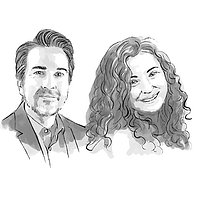'Atticus Finch' tackles tough questions about an American icon
Loading...
Like generations of American children before me and most likely after me, I met Atticus in the “tired old town” of Maycomb, Ala., through a required reading assignment. In Maycomb, rainy weather turned the streets to red slop and grass grew on the sidewalks.
The world of “To Kill a Mockingbird” seeped into my imagination. I don’t remember seeing the film, but somehow, if I close my eyes and imagine Atticus Finch’s face, it is Gregory Peck’s I see. As a middle schooler, I saw myself in the plucky, question-asking tomboy Jean Louise (Scout), who author Harper Lee based on herself.
In Joseph Crespino’s Atticus Finch: The Biography, we meet Harper Lee unable to visit her father on his birthday in the small town of Monroeville, Ala., Maycomb’s real-life counterpart. Mr. Crespino has written a nuanced biography, one that tells the twin stories of Harper Lee’s development of the character Atticus Finch and her relationship and ideological struggles with her father Amasa Coleman (A.C.) Lee, the Alabama lawyer and newspaperman, on whom Harper Lee based the fictional Atticus.
Crespino, however, does not try to align perfectly the events of Harper Lee and her father's life with their fictional counterparts. Occasionally, he does do so, with each direct parallel bringing its own thrill of recognition, like the awed reaction of Scout and Harper Lee to Atticus and A.C. Lee respectively moving to new homes after the death of their wives. In life and in “Go Set a Watchman,” Harper Lee’s second book, both old homes are torn down and replaced by ice cream shops.
In 1964, Harper Lee, famously reticent, gave her last interview. Half a decade later, Crespino turns to the most important stuff of his subjects’ lives to give his nuanced accounting: their written words. He weaves in letters Harper Lee wrote to friends during the years she worked on her only two books: the Pulitzer Prize-winning, required reading staple, and American classic “To Kill a Mockingbird” and the 2015-release “Go Set a Watchman,” actually written before “Mockingbird.” He includes columns Harper Lee wrote in college for the University of Alabama’s humor magazine, the “Rammer Jammer,” which drip with acerbic wit and pointed political commentary.
Editorials A.C. Lee wrote in the Monroe Journal, the paper he edited from 1929 to 1947, figure prominently in this biography. The deep dive into A.C. Lee’s political views from Crespino, an Emory University history professor, makes for slightly laborious reading and the densest (and first chapter) of the book, “The View From the Square.” For A.C. Lee, like everyone, Crespino writes and shows throughout the novel how “the political was shaped by the personal.”
And those political beliefs reveal what readers of “Watchman,” and the character Jean Louise already know: that Atticus “was always too good to be true.” A.C. Lee, and the character based off of him, were segregationists who both held racially paternalistic views built on a belief in racial superiority. Reading “Watchman” and Crespino’s biography cracks the facade of the fictional man held up as a paragon of moral righteousness, one that the film version cemented even firmly than did “Mockingbird” (a transformation explored in the biography). This complete examination does not, however, take away the power of Atticus.
While reading, I was reminded of a moral axiom I learned as a child: an explanation is not an excuse. Often, we do not seek to comprehend beliefs or ideas that we see as a harmful, as that attempt can feel like tacit approval. But an explanation of A.C. Lee’s views helps the reader understand not only A.C. Lee, but also Atticus; Monroeville, Ala.; the United States between 1930 through the 1960s; and the country now. It also asks the reader, like any good book, to examine herself. Crespino has to grapple with the same question Harper Lee did before him: How do you tell the story of a man whom you admire and who had deep moral values, but who also held deeply harmful and offensive views?
The answer seems to lie in the area of another moral axiom I learned as a child. This lesson, however, I learned from Harper Lee through Atticus Finch: “You never really understand a person until you consider things from his point of view … until you climb in his skin and walk around in it.”









